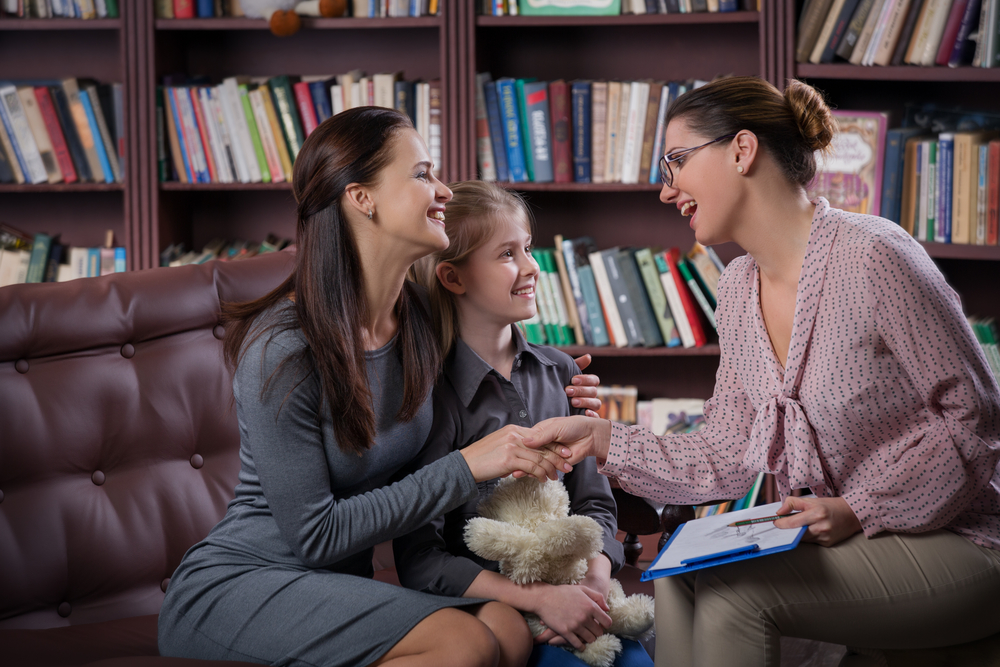Summer holidays are drawing to a close and school is going back around Australia. Many children may be a little anxious going back to school this year after the rollercoaster of 2020. One of the most important things parents can do at the beginning of the year is establish a positive home environment where children feel safe and secure. The following ideas can help parents, grandparents and extended family create a positive environment where children feel safe.
- Develop routines – no matter what type of parenting style you have a routine helps children feel safe and secure. Routines help children predict what is coming next and learn what is expected of them. This does not mean you can’t be flexible and spontaneous at different times simply that you are consistent with what you expect. You can also develop routines for how you deal with negative thoughts, think more optimistically, or relax at the end of the day.
- Set clear consistent boundaries – clear boundaries and rules that are applied consistently help children learn what is expected of them. Ensure the boundaries and rules are clear, easy to understand and framed in a positive way. Remind your children of your expectations and consistently enforce them.
- Encouraging desirable behaviours and attitudes – model the behaviours and attitudes you want your children to develop, actions speak louder than words. Avoid situations that might trigger challenging behaviours and when these do occur try using other positive alternatives before jumping straight to discipline, remember children can have ‘off’ days too (Hallowell, 2003, Sharp, 2009). If their behaviour is not what you desire, remind them of the type of behaviour you prefer and implement appropriate consequences – remembering the aim of consequences is to teach not punish.
- Use Descriptive Praise – When praising children use specific descriptive praise to let them know exactly what it is you have appreciated e.g. “Jamie, I really like the way you picked your clothes up off the floor”. This sense of recognition fosters children’s feelings of being valued by others.
- Communicate – it is vital that you and your children to develop good communication habits. If this occurs from a young age you will be more likely to be able to continue this as they grow. Really try and be present when you are talking with your child as they will be able to tell if your mind is somewhere else. Actively listen – pay close attention to what your child is saying and then paraphrase what they said and how they are feeling to check if you have it right. This way they will know you are listening and want to understand.
- Responsibilities – provide your children with opportunities to be involved in different activities around the house they have responsibility for e.g. cleaning their bedroom, packing up their toys. This allows them to learn about responsibility for their actions and feel important and valued.
- Spend time – due to hectic lifestyles and other pressures it can be difficult for families to spend time together on a regular basis. Often it seems like there are many other things that need to be done instead of simply spending time with the kids. However, it is vitally important for parents to spend both quality time and a good quantity of time with their children. When you are doing this try to be present and just focus on what you are doing with them, enjoy the moment other things can wait and will be there when you finish.
Quick tips that help to create a positive home environment:
- Try to keep to a consistent but flexible daily routine – children like to know what to expect next and enjoy having a structure to their day
- Establish healthy sleep habits and routines – many children frequently do not get enough sleep and this can affect their development and learning, as well as their level of happiness.
- Develop family rituals- certain things you do as a family e.g. having a special breakfast every Saturday or Sunday morning, playing in the park Sunday afternoon, putting the Christmas tree up together
- Have frequent dates with each other – parents with each child and parents with each other. This time spent one-on-one is extremely special and helps your children, as well as your partner feel valued and loved.
- Celebrate achievements together – big or small, let your children know that you notice what they have achieved and are proud of them.
- Limit the amount of time your child spends in front of a screen, whether it is the TV, computer or game console. There need to be rules about the amount of time they can have which are then consistently and fairly applied. Instead of sitting in front of a screen encourage them to read, spend time with you, their siblings or friends, get outdoors and enjoy the fresh air, as these things contribute to their happiness and well being.
- Cut yourself some slack – it doesn’t have to be perfect all the time, please don’t be hard on yourself or your children in the first few weeks of school as we are all getting back into these routines together.









